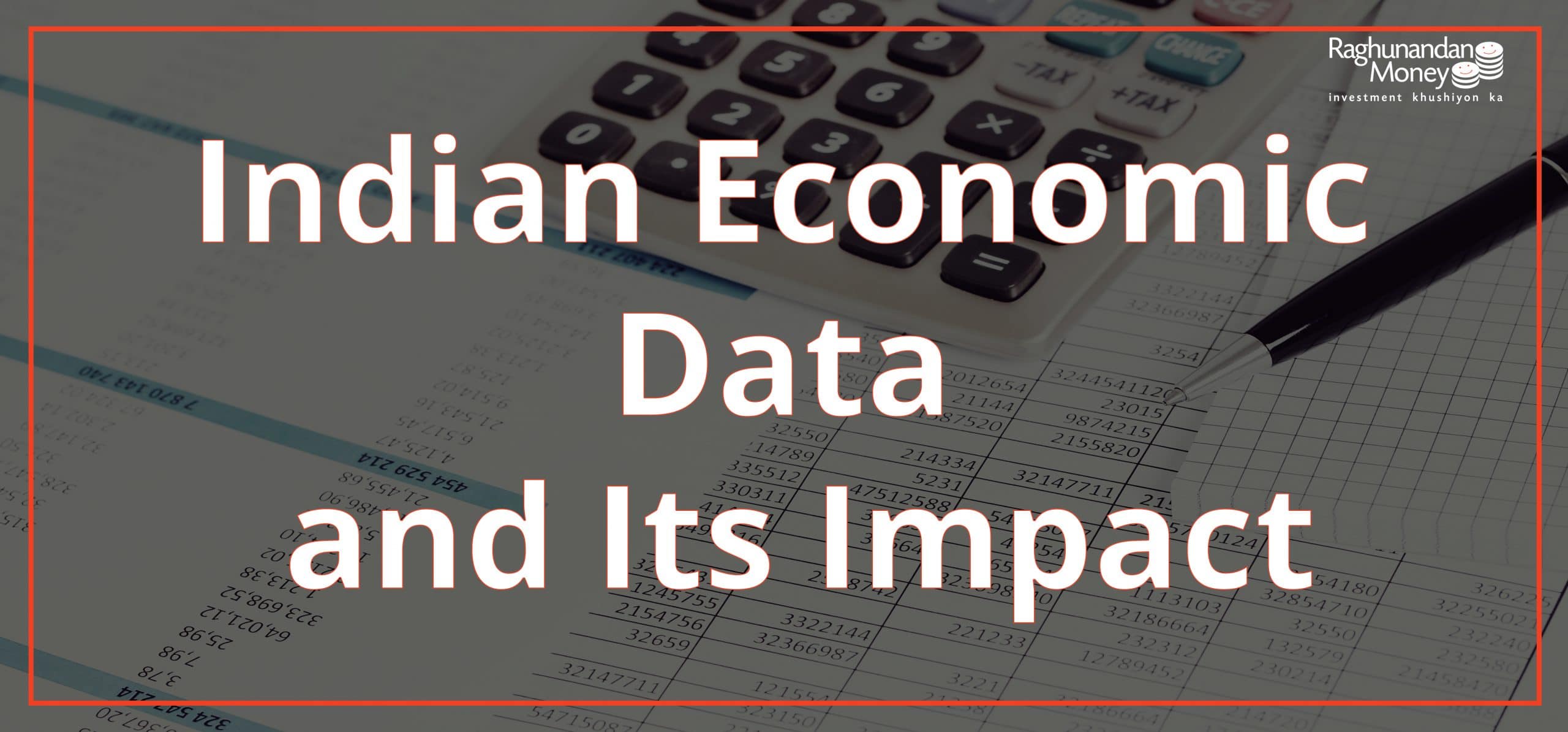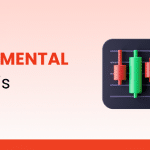Indian economy is considered a developing market economy. The economy of India by Purchasing Power Parity (PPP) is the third-largest in the world and fifth-largest by nominal GDP. The growth perspective of India also seems bright in the long term because of its young population. The economic data is released by central from time to time on the Indian economy.
We are going to discuss five important data and their impact on Indian markets.
- Gross Domestic Product (GDP):
The national income of the country is denoted by Gross Domestic Product (GDP). It is also known as Gross Domestic Income (GDI). It is calculated by adding the value of all the final goods and services produced in the country. It indicates the economic health of a country, and economists use it to gauge economic performance. The GDP data is updated quarterly on mospi.nic.in, and the increase in GDP numbers is considered a positive sign for the country’s economy and the stock market. The formula for calculation of GDP number is given below-
GDP = Consumption + Investment + Government Spending + Net Exports
- Index of Industrial Production (IIP):
The index of industrial production denotes a condition of industrial production during a particular period of time. This is calculated on the basis of the previous numbers, such as currently the data of the year 2011-12 has been taken as the base year for further calculations, and the index level is taken 100 presently. The sectoral composition of IIP data is taken from three different sectors mining, manufacturing, and electricity and the weight of all three is 14.37, 77.63, and 7.99, respectively. The data is published monthly by the Central Statistics Office, and the data can be found of mospi.nic.in. Indian stock markets react well with IIP data, and the higher number is taken as positive for the INR while the lower numbers are taken as negative for the INR.
- Inflation:
Inflation is the rise in the price of goods and services of common use such as housing, clothing, food, transport, etc. It measures the average price change in goods and services over a particular period of time. There are two ways to measure inflation: the Wholesale Price Index (WPI) and the Consumer Price Index (CPI). The CPI is based on retail prices, while the WPI represents a basket of wholesale goods. It is updated monthly, and the data can be found on mospi.nic.in. The increment in the numbers is considered negative for INR, while the decrease in numbers is considered positive for INR.
- Trade Deficit:
When imports of a country are more than their exports in a given period of time, a trade deficit occurs. It is also called a negative balance of trade. In the short run trade deficit allows nations to avoid the shortage of goods and other economic problems. However, it put pressure on the particular country’s currency and devalues it. On the other hand, if the exports of a country are more than its imports, it is called a trade surplus. The trade balance data can be found on www.commerce.nic.in, and it’s published monthly on that. The data increase is considered a negative sign for the country’s economy, stock market, and currency.
- Forex Reserves:
Forex reserves are used by a country to settle trade deficits between countries. Forex reserves are kept in foreign currency assets, gold, SDRs holding, and IMF reserves. At the time of the financial crisis, foreign exchange reserves are useful in a prudent manner. An increment in the forex reserves data numbers is considered positive for that particular country’s currency. In contrast, a lower value of data is considered negative for the currency. Forex reserve data is published monthly on the RBI website.
About Author

Stock Trading Now trade in ₹9 Per Order or ₹ 999 Per Month Plans.
Future & Options Access F&O contracts with advanced tools for hedging and speculation.
Currency Trading Trade in major currency pairs and manage forex exposure efficiently.
Commodity Trading Diversify Trading with MCX & NCDEX by Trading in Gold, Silver, Base Metals, Energy, and Agri Products.
Margin Trading Funding Boost your buying power with upto 5X, Buy now Pay Later
Algo Trading Back test, Paper Trade your logic & Automate your strategies with low-latency APIs.
Trading View Leverage Trading View charts and indicators integrated into your trading platform.
Advanced Options Trading Execute multi-leg option strategies with precision and insights.
Stock Lending & Borrowing Earn passive income by lending stocks securely through SLB.
Foreign Portfolio Investment Enable NRIs and FPIs to invest in Indian markets with ease and compliance.
IPO Invest in upcoming IPOs online with real-time tracking and instant allotment updates.
Direct Mutul Funds 0% Commissions by investing in more than +3500 Direct Mutual Fund Scheme.
Corporate FDRs Earn fixed returns with low-risk investments in high-rated corporate fixed deposits.
Stocks SIPs Build long-term wealth with systematic investment plans in top-performing stocks.
Bonds & NCDs Access secure, fixed-income investments through government and corporate bond offerings.
Depository Services Safely hold and manage your securities with seamless Demat and DP services with CDSL.
Insurance One-Stop Destination For All Your Insurance Needs. Compare Quotes from Top Insurers & save bigs.
Journey Tracing our growth and milestones over time.
Mission & Vision Guided by purpose, driven by long-term vision.
Why RMoney Platform Smart, reliable platform for all investors' needs.
Management Experienced leadership driving strategic financial excellence.
Credentials Certified expertise with trusted industry recognition.
Press Release Latest company news, updates, and announcements.
Testimonials Real client stories sharing their success journeys.
7 Reasons to Invest Top benefits that make investing with us smart.
SEBI Registered Research Trusted insights backed by SEBI-compliant research.
Our Technology Advanced tools enabling efficient online trading.
Calculators Access a suite of smart tools to plan trades, margins, and returns effectively.
Margin Calculator Instantly check margin requirements for intraday and delivery trades.
MTF Calculator Calculate MTF funding cost upfront to ensure full transparency before placing a trade.
Brokerage Calculator Know your exact brokerage charges before placing any trade.
Market Place Explore curated investment products and trading tools in one convenient hub.
RMoney Gyan Enhance your market knowledge with expert blogs, videos, and tutorials.
Performance Tracker Track our research performance with full transparency using our performance tracker.
Feedback Share your suggestions or concerns to help us improve your experience.
Downloads Access important forms, software, and documents in one place.
Locate Us Find the nearest RMoney branch or service center quickly.
Escalation Matrix Resolve issues faster with our structured support escalation process.
Back Office Log in to view trade reports, ledger, and portfolio statements anytime.
Account Modification Update personal or bank details linked to your trading account.
Fund Transfer Transfer funds instantly online with quick limit updation to your trading account.
Bank Details View our registered bank account details for seamless transactions by NEFT, RTGS or IMPS.
How to Apply IPO Step-by-step guide to apply for IPOs using your trading account.
RMoney Quick Mobile App Trade on-the-go with our all-in-one mobile trading app.
RMoney Quick login Quickly access your trading account through the RMoney Quick web-based trading.
RMoney Rocket Web Version Experience powerful web-based trading with advanced tools for algo traders.
RMoney Rocket Mobile Version Trade anytime, anywhere with our feature-rich mobile trading platform.




















